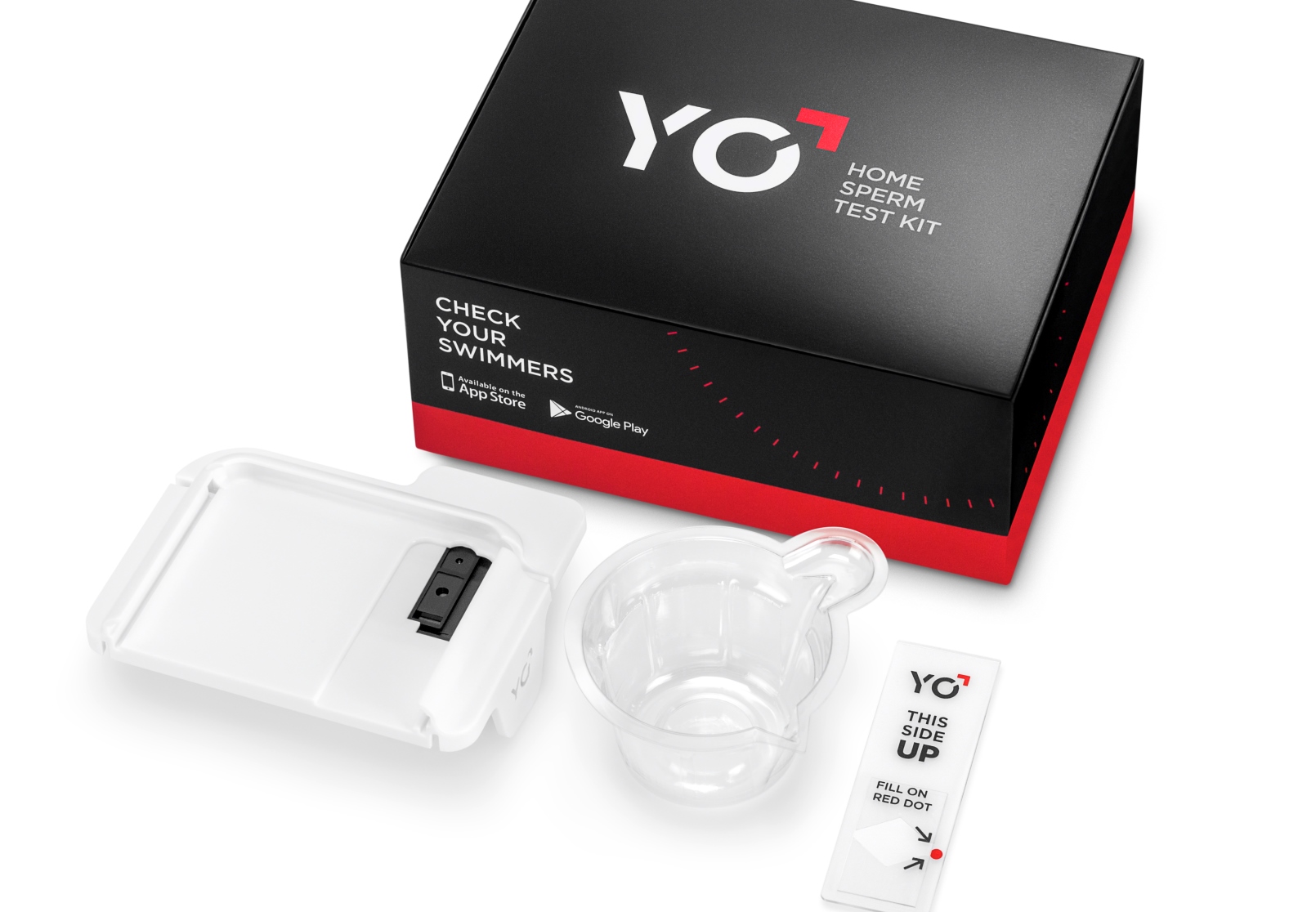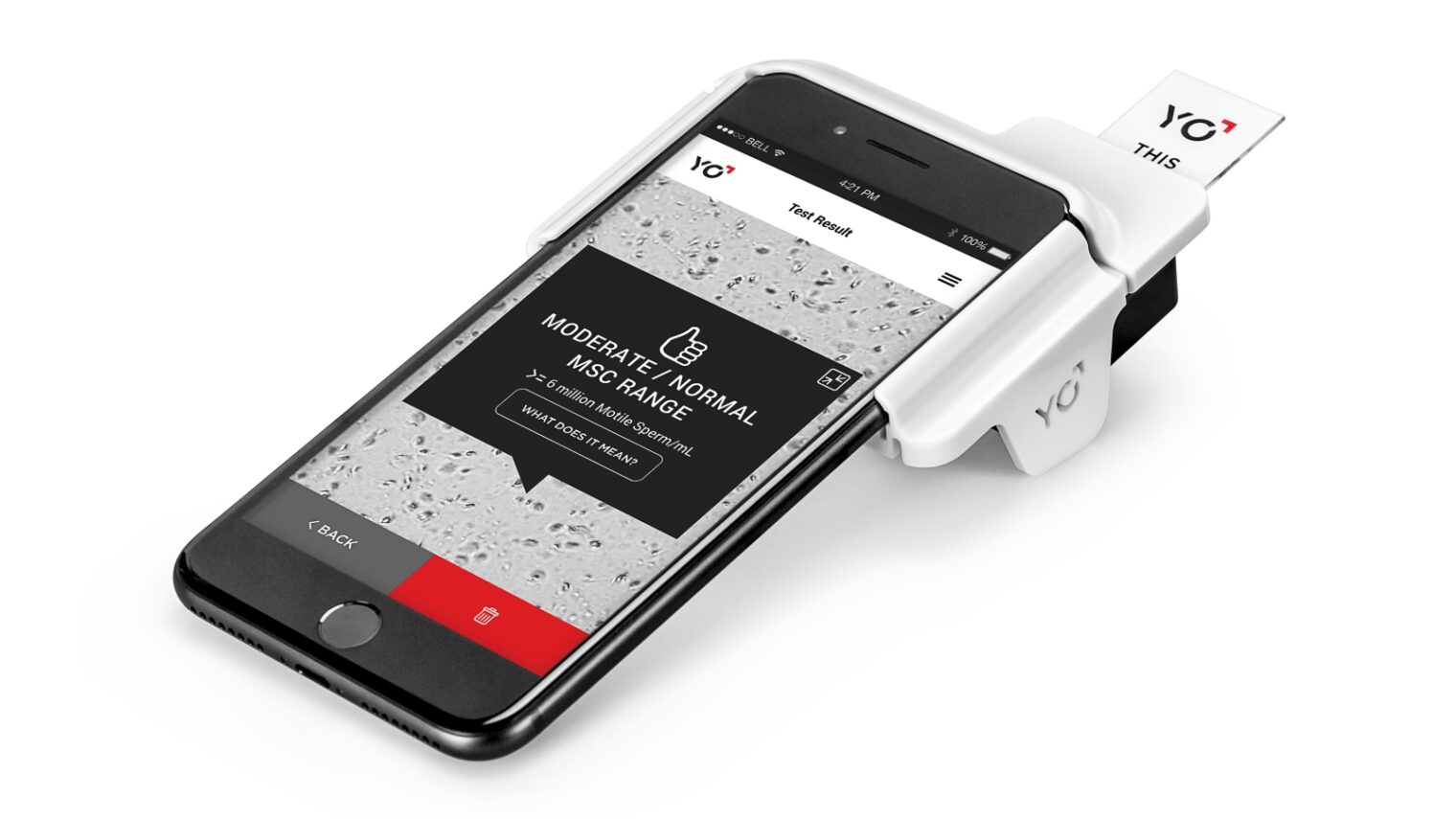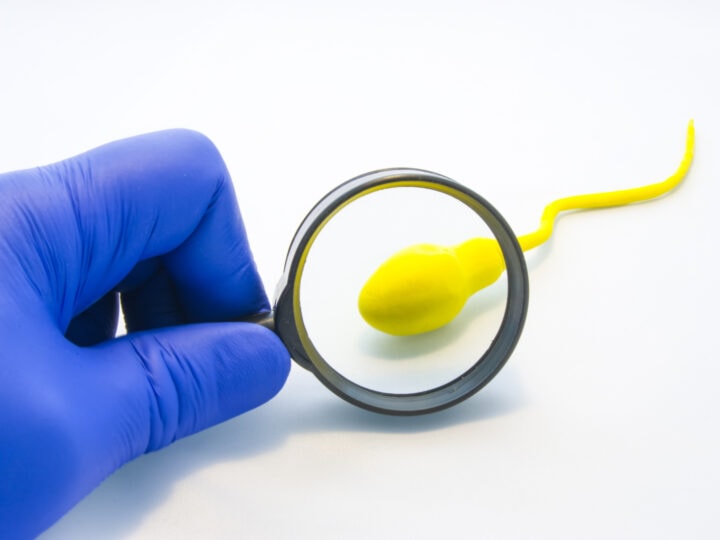As a male infertility crisis grips the Western world, a groundbreaking Israeli kit now enables men to check the number and motility of their sperm in the privacy of their home.
YO is the first home sperm test of its kind to receive approval of the US Food and Drug Administration (FDA) as well as EU and Israeli certifications. A soon-to-be-published study by the Cleveland Clinic has shown YO to be more than 97% accurate.
While other kits are available to gauge whether sperm count is normal or low, YO uniquely uses smartphone technology to provide a real-time video display of sperm motility – the critical factor in the ability to fertilize an egg. The video can be saved and sent to a physician for further analysis.
A mega-data study published last year by Hebrew University public-health researcher Dr. Hagai Levine with a colleague at New York’s Mt. Sinai Medical Center revealed that sperm counts in North America, Europe and Australia plunged 52 percent between 1973 and 2011.
And the problem appears to be worsening, likely due to previously identified environmental and lifestyle factors such as prenatal chemical exposure, adult pesticide exposure, smoking, stress and obesity.
In response to market demand, YO was developed through a subdivision of Medical Electronic Systems (MES) in Caesarea. The company’s automated sperm-quality analysis tests have been used by labs worldwide for 17 years and hold a 40% market share in the United States alone.

“People had mentioned to us the idea of developing a home sperm test because it’s difficult for men to produce a sample in a lab environment and the test is very time sensitive,” explains Marcia Deutsch, cofounder of MES with her husband, Gabe.
But until a few years ago, home kits were not able to do more than count the number of cells in a semen sample.
“We hesitated to get into the market until we could offer a moving sperm test so you could see video and the user could know both count and motile concentration, which is very significant,” Deutsch tells ISRAEL21c.
Several years ago, they realized such an advanced test would be possible using a smartphone platform. YO was launched after four years of development in Israel and clinical trials in Israel and the United States.
Two tests in each kit
Each YO home test kit ($59.99) contains disposable collection cups, testing slides, liquefying powder, cleaning wipes and plastic pipettes for two tests, along with a proprietary reusable smartphone clip-on device for iPhones and many Android devices.
The user follows simple directions to prepare a slide with a drop of his semen. The slide is inserted in the clip, and the YO app takes over from there, snapping a picture of the sample for analysis. Results, available within minutes, are saved in the YO archive along with the video.
YO refill kits can be ordered for long-term monitoring of sperm quality.
For the Deutsches, whose focus has always been business-to-business, launching a consumer product was like starting all over again, says Marcia Deutsch.
But despite facing a learning curve, they felt a sense of purpose.
“We want to impact people’s ability to have children. With the trend in male infertility, one of our missions is increasing awareness because men need to start taking a look at what they can do to improve their sperm count and motility,” she says.
The kit is available worldwide from the YO website and through e-tailers such as eBay and Amazon. “We are actively launching in India, the US and Europe,” says Deutsch.
Acknowledging that similar products are likely to appear in the market, Deutsch is proud that YO was not only the first but also the only one developed and manufactured in Israel, where 55 of MES’s 80 employees are based.
“Our philosophy is to keep the product in Israel even though we’re far from market,” she says. It’s undoubtedly helpful that MES already has a network of sales and service centers in Europe, the United States, India and China.
For more information, click here

















